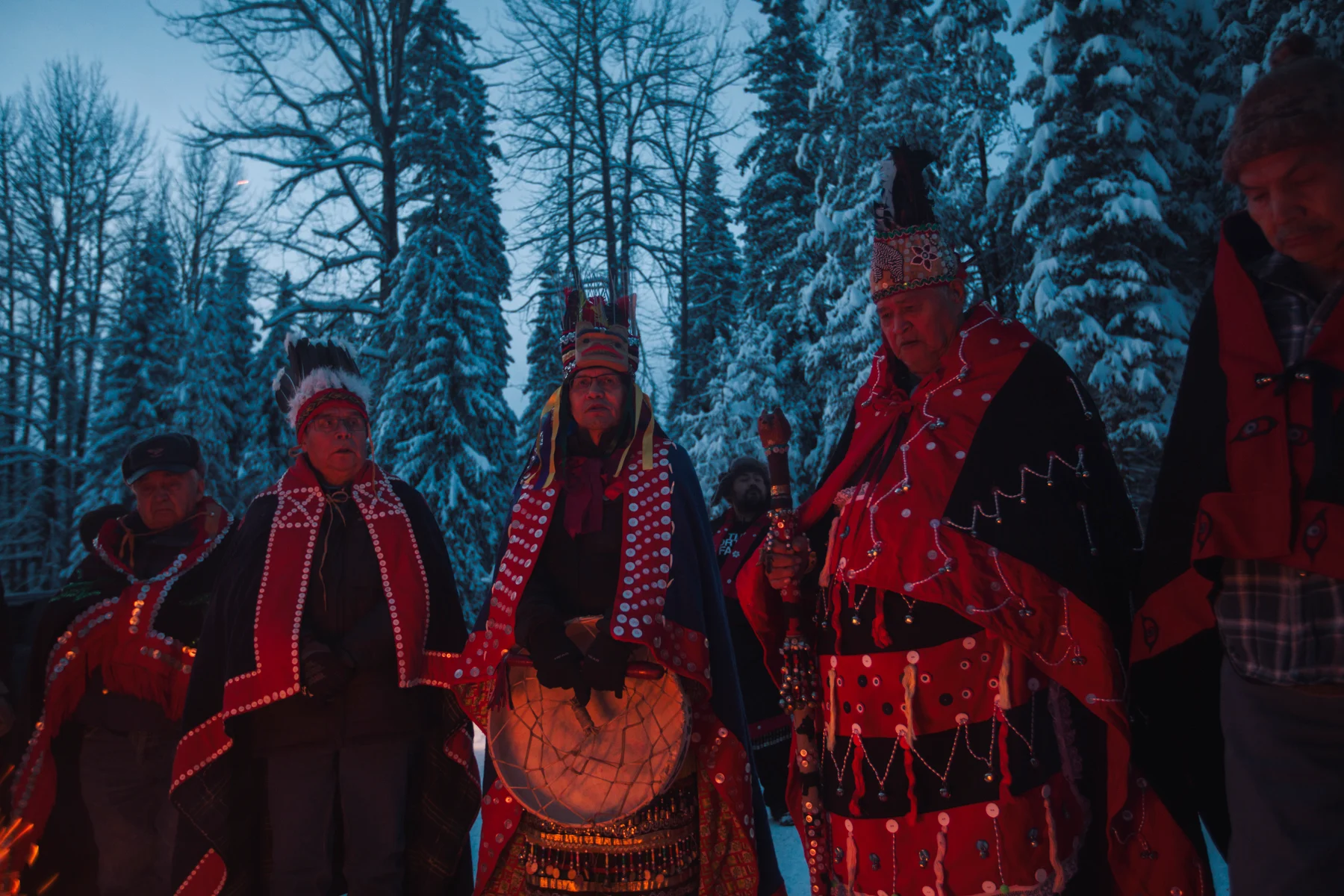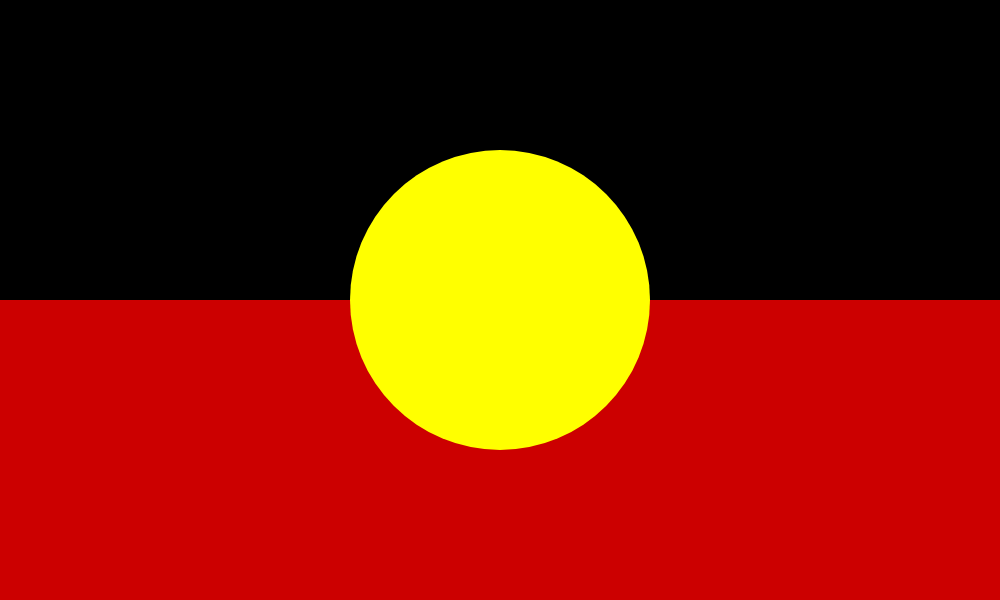The Wetʼsuwetʼen are a First Nation who live on the Bulkley River and around Burns Lake, Broman Lake, and François Lake in the northwestern Central Interior of British Columbia.
They speak Witsuwitʼen, a dialect of the Babine-Witsuwitʼen language which, like its sister language Carrier, is a member of the Athabaskan family.
Their oral history, called kungax, recounts that their ancestral village, Dizkle or Dzilke, once stood upstream from the Bulkley Canyon. This cluster of cedar houses on both sides of the river is said to have been abandoned because of an omen of impending disaster. The exact location of the village has been lost. The neighbouring Gitxsan people of the Hazelton area have a similar tale, though the village in their version is named Dimlahamid (Temlahan)
The endonym Wetʼsuwetʼen means "People of the Wa Dzun Kwuh River (Bulkley River)"
The Wet’suwet’en First Nation was formerly part of the Omineca Band. However, in 1984 the Omineca Band split into the Broman Lake and Nee-Tahi-Buhn bands. The Skin Tayi band later split off from Nee-Tahi-Buhn. Today, the Skin Tyee Band, Nee Tahi Buhn Band, Wet’suwet’en First Nation, Moricetown Band and Hagwilget Band make up the Wet’suwet’en Nation.
Like most First Nations here, Wet’suwet’en never signed treaties with the Canadian or provincial governments. Nevertheless, the latter took the land and leased forested acreage to logging companies. Today just 20% of British Columbia’s old-growth forests remain.
In 2020, after decades of activist pressure, the province identified about a quarter of the remaining old growth as at high risk for logging and recommended a pause while deciding their fate. Yet today, logging has been deferred in less than half of the high-risk area.
Another conflict with the settler state has been the Coastal GasLink pipeline, which seeks to transport liquefied natural gas from northeast BC to a terminal on the coast near the town of Kitimat.
The 670-kilometre (417-mile) pipeline will cut across traditional Wet’suwet’en lands that cover 22,000sq km across northern BC.
The hereditary chiefs, who under Wet’suwet’en law claim authority over those traditional territories, said they never gave their consent for the project to move forward. They have raised concerns about the pipeline’s potential effects on the land, water, and their community.
In late July, Amnesty International took the extraordinary step in naming Dsta’hyl Canada’s first ever designated prisoner of conscience, and now demanding his immediate and unconditional release.
“The Canadian state has unjustly criminalized and confined Chief Dsta’hyl for defending the land and rights of the Wet’suwet’en people,” Amnesty International’s Ana Piquer stated in a press release. “As a result, Canada joins the shameful list of countries where prisoners of conscience remain under house arrest or behind bars.”
In October 2021, Dsta’hyl was arrested and charged with criminal contempt after confiscating and decommissioning heavy equipment utilized by Coastal GasLink to construct its LNG pipeline on unceded Wet’suwet’en territory. Dsta’hyl said he was enforcing Wet’suwet’en laws as the company did not have the free, prior and informed consent of hereditary chiefs to build the pipeline.
Megathreads and spaces to hang out:
- 📀 Come listen to music and Watch movies with your fellow Hexbears nerd, in Cy.tube
- 🔥 Read and talk about a current topics in the News Megathread
- ⚔ Come talk in the New Weekly PoC thread
- ✨ Talk with fellow Trans comrades in the New Weekly Trans thread
- 👊 Share your gains and goals with your comrades in the New Weekly Improvement thread
reminders:
- 💚 You nerds can join specific comms to see posts about all sorts of topics
- 💙 Hexbear’s algorithm prioritizes comments over upbears
- 💜 Sorting by new you nerd
- 🌈 If you ever want to make your own megathread, you can reserve a spot here nerd
- 🐶 Join the unofficial Hexbear-adjacent Mastodon instance toots.matapacos.dog
Links To Resources (Aid and Theory):
Aid:
Theory:



There are worse ideas, but there are better. Few people would blame you - even when the US gave a shit about the pandemic there was evidence to suggest that the likelihood of catching outdoors is less than indoors. Consider a YouTube video of the spread of particles after a sneeze.
It's not 100% risk free from spreading particles, but consider the likelihood of, at any point, going outside to spread something infectious into the wind or some non-zero chance of spreading an infectious particle because you have a vent connected to the outside world.
Personally, I think the risk to others of driving to some trailhead and waiting until no one is around before taking your bike to see the nature is an entirely reasonable risk. Depends on your stomach for odds. Immunology is weird. Though I don't use it professionally at Langley, I did get the opportunity to study it in college where I majored in infiltrating leftist spaces. I credit is for exposing me to the idea of an RNA vaccine and thinking that it sounded entirely reasonable.
I’ll just keep reading in bed